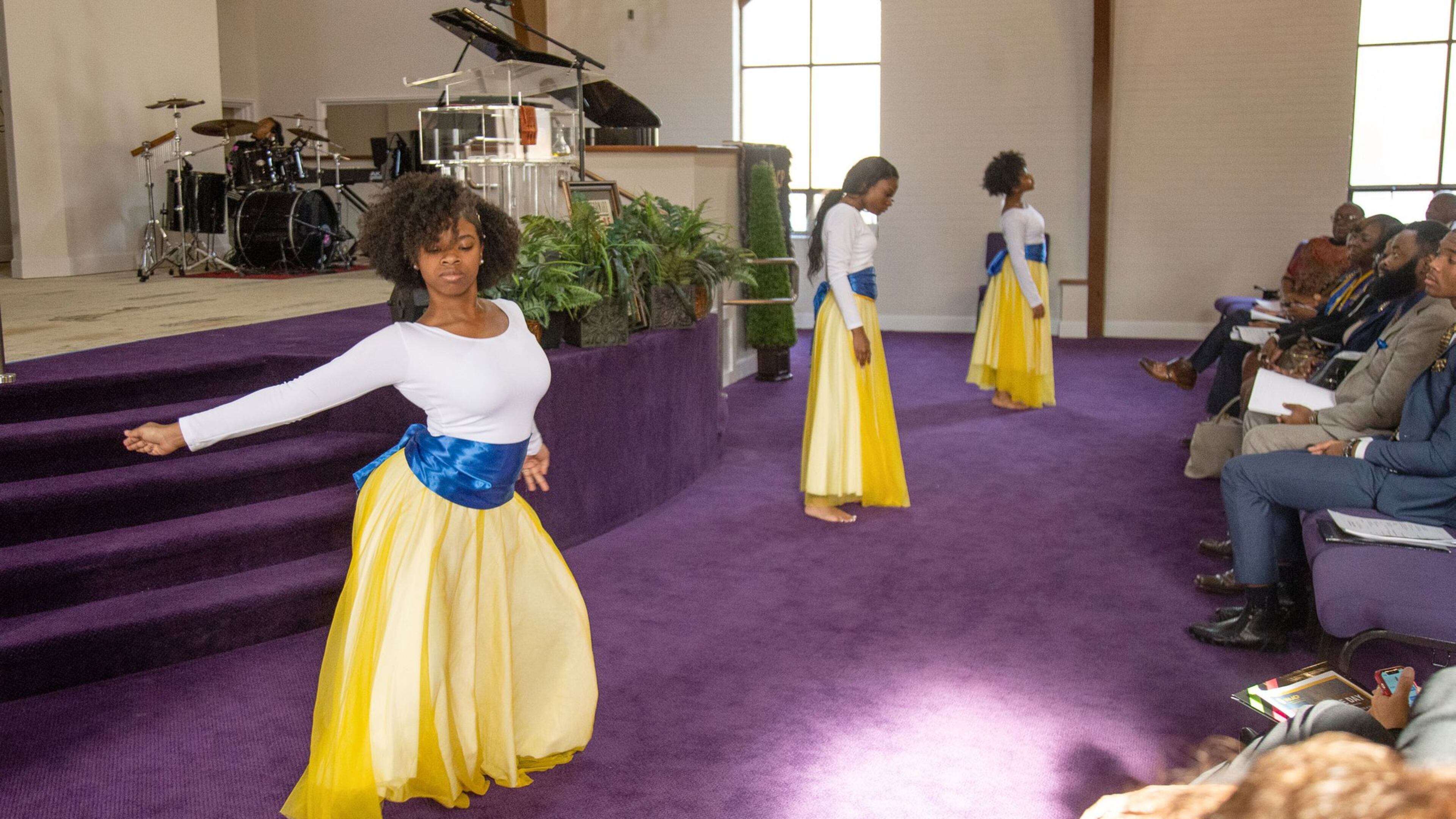DeKalb Emancipation Proclamation event highlights history’s importance

Although the Emancipation Proclamation went into effect more than 100 years ago, civil rights leaders believe its message resonates as much today as it did then. That was the message delivered Wednesday during a Jubilee Day celebration at Rainbow Park Baptist Church in Decatur.
The event, organized by the DeKalb NAACP chapter and celebrated by other chapters across the country, commemorates the day in 1863 that the Emancipation Proclamation went into effect. Although it didn’t free every slave in the United States, it was a major step in acknowledging the rights of an entire race of people.
Keynote speaker Cameron McWhirter, former AJC reporter who now writes for the Wall Street Journal, walked the crowd of nearly 300 through key points in history that showed the oppression and determination of black people, including a pivotal time following World War I.
McWhirter, also the author of “Red Summer: The Summer of 1919 and the Awakening of Black America” detailed the anti-black riots that swept the country for eight months that year.
“The term ‘Red Summer’ was coined by the NAACP,” said McWhirter. “It was James Weldon Johnson who came up with the phrase to describe the horrific race riots.” Johnson, a noted author and civil rights activist, worked in administrative and leadership positions for the group for more than a decade during that time.
The oppression of blacks was nothing new, but this was the first time that they organized using the Constitution and other organs of democracy to fight back, McWhirter said.
“At that time whites … used their power to attack blacks. And it was happening all over the country — Chicago, Omaha, outside the White House and President Woodrow Wilson did nothing about it — but mostly in the Southern states,” said McWhirter.
To be a black person in America, he said, was too live in constant fear. Your life, your property, your family could be taken from you for no legitimate reason at any time.
To explain why blacks went from decades of trepidation to a period of resistance, McWhirter explained that three factors took place during that time — World War I, the Great Migration and a high demand for cotton.
For the first time, blacks fought in a major war for the United States. Although hundreds of thousands were recruited, only about 50,000 saw combat on the front lines. They were stationed in France and were treated with respect and dignity, but came back home to segregation and Jim Crow laws. They were attacked for acting “above their station.”
The intolerable treatment they received in the South prompted many blacks to move north. There were factory jobs that paid well and they were allowed to vote. There was still segregation — they were allowed to live only in certain parts of cities. And as the numbers swelled many whites felt threatened.
Although the life of a sharecropper was by definition set up to keep blacks beholden to former slavemasters, the demand for cotton after World War I shot up prices. Even those farmers who were treated unfairly came out ahead. They were able to buy land and cars and improve their way of life. Blacks’ newfound wealth threatened many whites and a backlash ensued.
McWhirter also highlighted three leaders — Johnson, W.E.B. DuBois, Johnson and Walter White — who emerged during that time, and who all have ties to the metro area through Atlanta University.
Johnson, a former NAACP executive secretary,obtained an undergraduate degree and a master’s degree from Atlanta University. In his NAACP role, Johnson was an ardent fighter for federal anti-lynching laws.
DuBois, who taught at Atlanta University beginning in 1897, researched and wrote about the mistreatment of blacks by the government, including blacks in Georgia’s prison system.
White graduated from Atlanta University in 1916 and helped to found the Atlanta branch of the NAACP that same year. White, who was light-skinned enough to pass for white, was primarily responsible for conducting undercover investigations of 41 lynchings and eight race riots.
McWhirter concluded that celebrating black history is acknowledging a part of American history that is often overlooked. Today’s Black Lives Matter movement which uses many of the same tactics as Johnson, DuBois and White couldn’t have happened without them pioneering the cause.
“It bothers me when people say that race relations haven’t gotten any better since the times of slavery,” he said. “You do these men and women a disservice. There aren’t any statues erected in their honor, but they are heroes. They risked their lives to use the country’s founding premises to prove that all citizens deserve the same rights.”
NAACP DeKalb President Teresa Hardy agreed.
“One of the attendees asked ‘Where are the children?’ when he saw few youngsters in the audience. We’re looking for opportunities to meet them where they are — at school, entertainment events, whatever,” she said. “This work is far from over and it’s too important not to bring in the next generation.”
Upcoming DeKalb NAACP Activities
“Just Mercy” screening
A benefit screening of the movie “Just Mercy” 7 p.m. Friday, Jan. 10 at AMC North DeKalb, 2041 Lawrenceville Highway, Suite F-22, Decatur. The film tells the true story of Walter McMillian, who with the help of young defense attorney Bryan Stevenson, appealed his murder conviction.
Tickets range from donations of $7 to $50 with an additional processing fee.
Proceeds will support the Dekalb County NAACP Remembrance Project and the Fulton County Remembrance Coalition.
Information: justmercyatl.eventbrite.com
2020 Dr. Martin Luther King Jr. Parade
With the theme “Remembering the Dream, Honoring the Dreamer” the parade starts at noon, Monday, Jan. 20 at
Green Pastures Christian Church, 5455 Flat Shoals Parkway, Decatur and ends at Martin Luther King, Jr. High School, 3991 Snapfinger Rd, Lithonia.
Information: Vivian Moore, Chair - MLK, Jr. Parade Committee at (404) 241-8006 or by email at mlkparade@naacpdekalb.org


